Hildreth Meière Documentary Series - Watch Trailer
Hildreth Meière Documentary Series - Watch Trailer
Commissioned by: Bertram Goodhue AssociatesMedium: glazed ceramic tileExecuted by: R. Guastavino
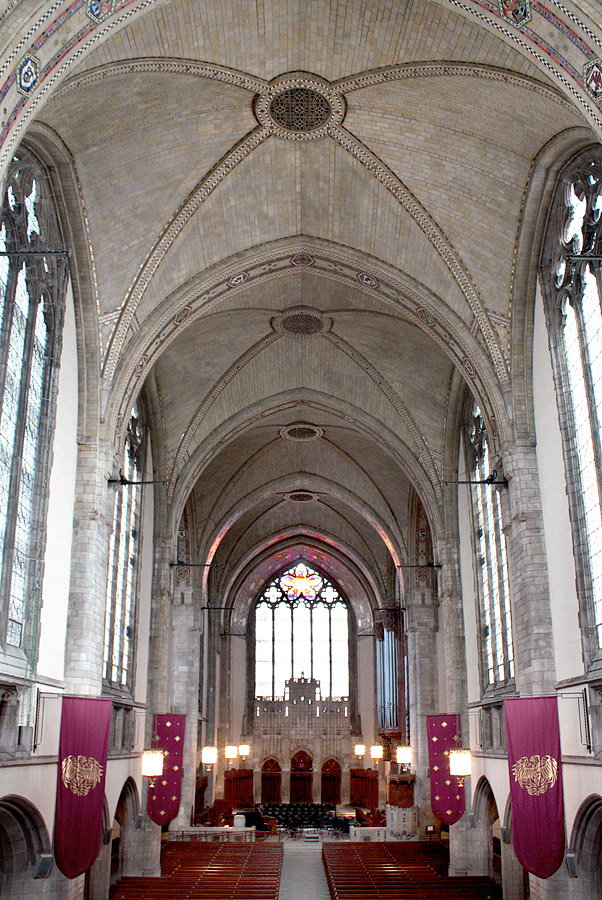
Rockefeller Memorial Chapel with ribs, vaults, and apse ceiling decorated in glazed ceramic tile
Bertram Grosvenor Goodhue designed Rockefeller Memorial Chapel in 1919, but he died two years before the cornerstone was laid in 1926. His successor firm Bertram Goodhue Associates hired Hildreth Meière to decorate the chapel, and R. Guastavino to execute the decoration. Goodhue’s successor firm, Meière, and Guastavino had been working together on Meière’s designs in glazed ceramic tile at the Nebraska State Capitol.
Rockefeller Chapel represents the first time that Guastavino set Meière’s colorful designs in glazed ceramic tile into the vaults and ceiling of a Gothic-style building.1 For the apse ceiling, ribs and vaults Meière represented St. Francis of Assisi’s Canticle of the Creatures.
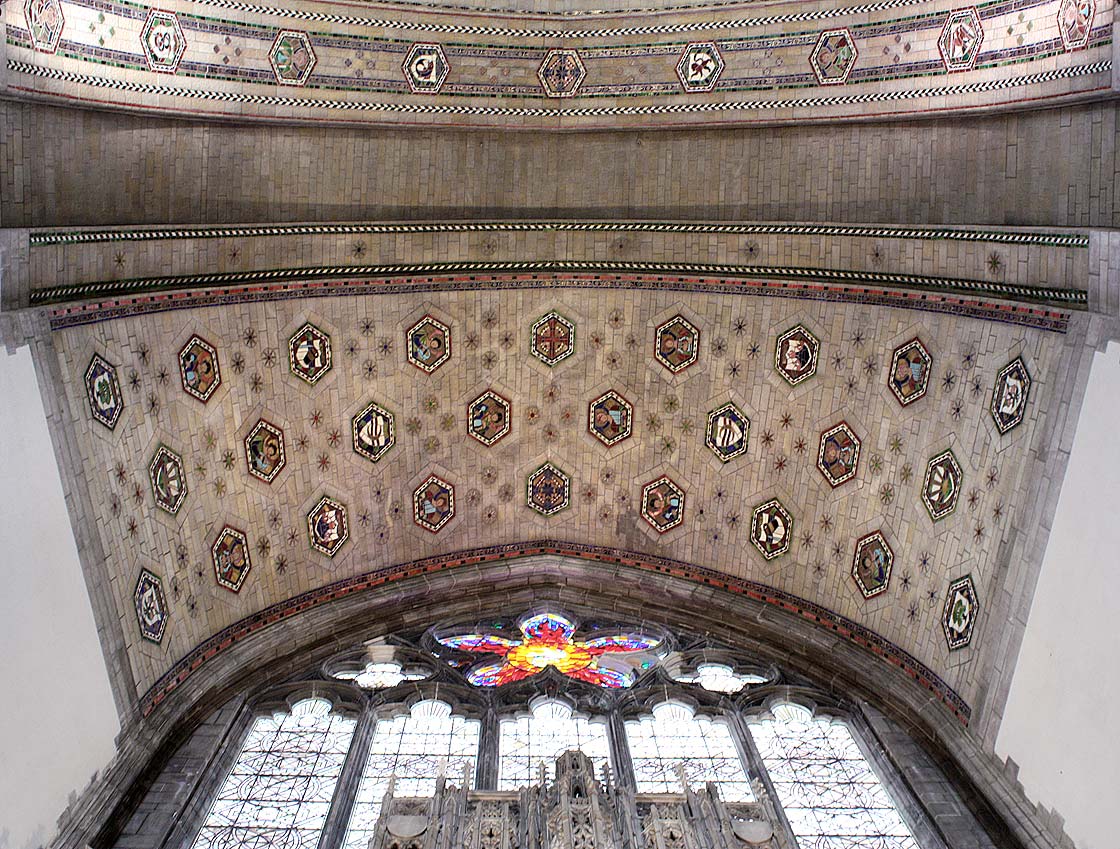
Apse ceiling with medallions depicting the Canticle of the Creatures
In celebrating the interconnectedness of all creatures, the Canticle of the Creatures symbolizes unity and peace. Meière’s individual medallions symbolize the earthly and heavenly realms. Medallions for the earthly realm include images of the sun, moon, water, fire, plants, trees, fish, snake, bird, and lion. For the heavenly realm, Meière depicted angels playing a harp, drum, pipes, trumpet, triangle, and cymbals.2 The images of the earthly and heavenly realms alternate in groups of three:
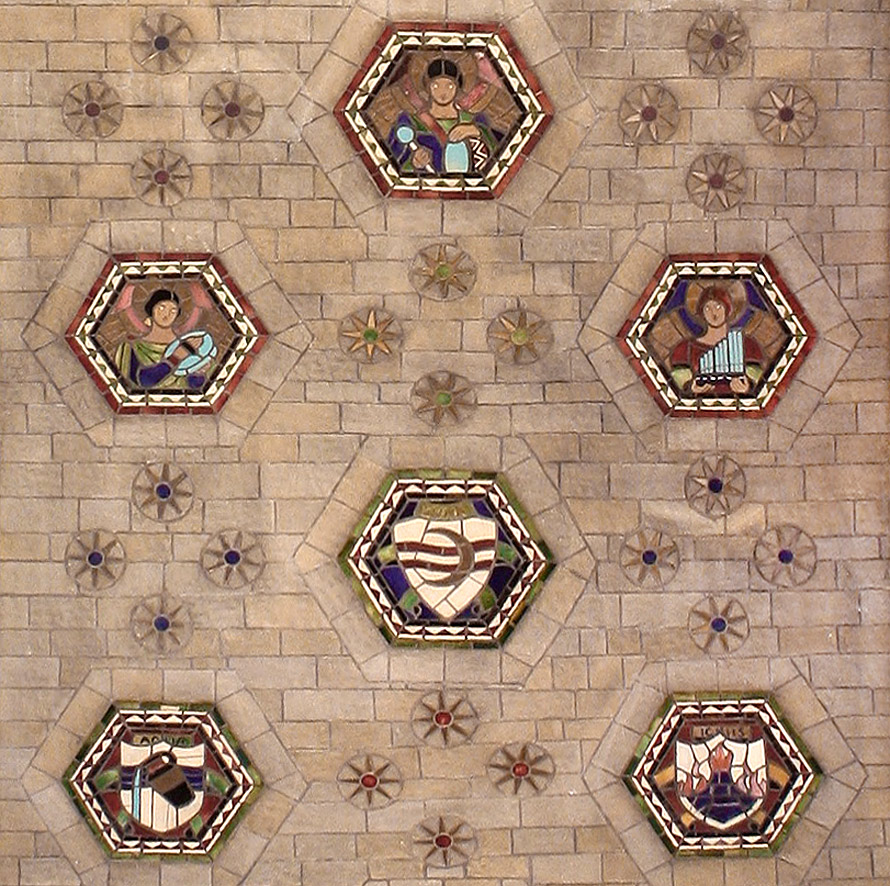
From top to bottom, left to right: angel playing drum, angel playing cymbals, angel playing pipe; the moon, water, and plants
Meière’s hexagonal-shaped medallions containing individual images in colorful, glazed ceramic tile set into a ground of beige Akoustolith tile recall her more elaborate narrative scenes within hexagonal medallions on the ceiling of the Senate Chamber in Nebraska. There, the strength of her narrative scenes allows them to stand out against the beige Akoustolith tile ground, which was required to cover fifty percent of the ceiling in order to maintain the acoustic properties of the space.
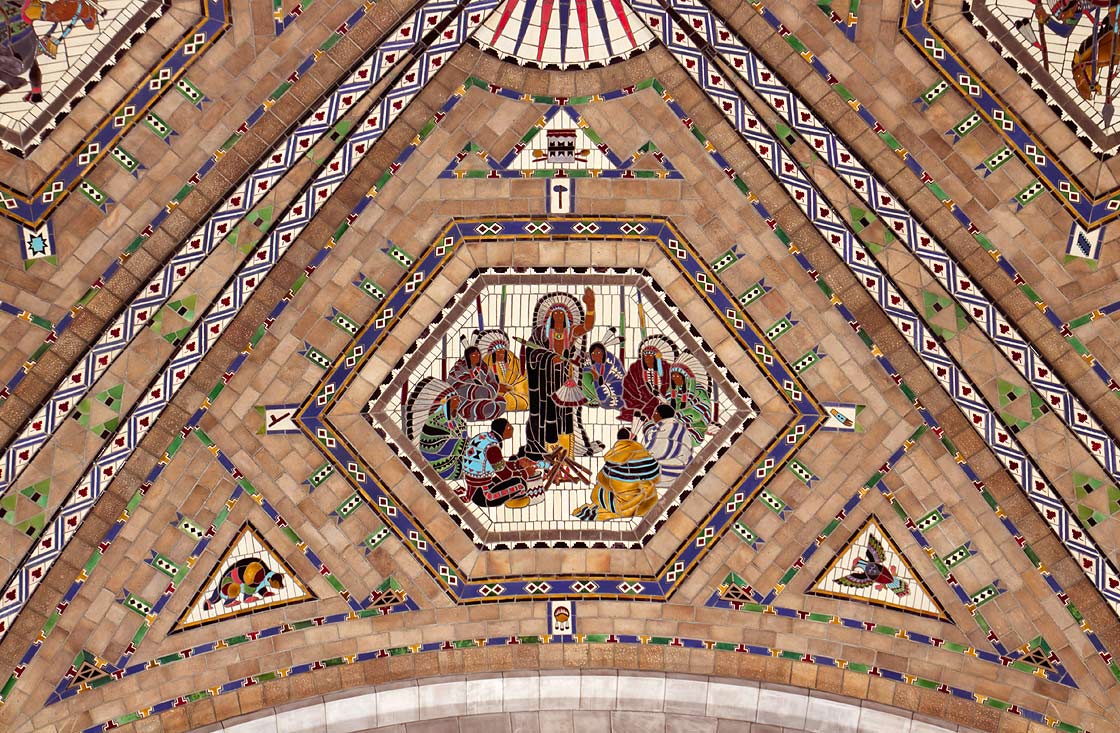
Hexagonal medallions with elaborate designs and borders set into ceiling of Nebraska Senate Chamber
Meière’s predilection for Sioux quillwork and beadwork designs led her to incorporate them into her border designs for religious institutions. In designing borders for the ribs of the vaults at Rockefeller Memorial Chapel, she adapted the Sioux people’s continuous repeat-patterns of yellow and black triangles and border of black and white chevrons.
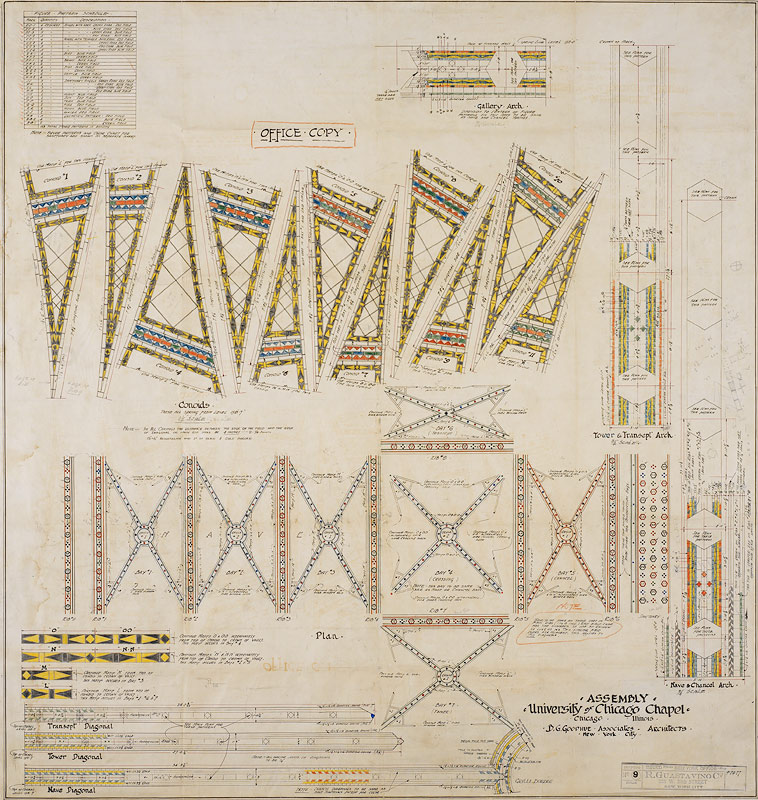
Assembly Drawing Showing Placement of Tile Patterns, University of Chicago Chapel, Bertram G. Goodhue Associates, dated September 24, 1927. Blackline print with colored pencil on paper. Avery Architectural and Fine Arts Library, Columbia University, New York, 1963.002.00508
Meière repeated the black and white chevron pattern on the arch along the eastern wall at Temple Emanu-El in New York that she decorated the following year.
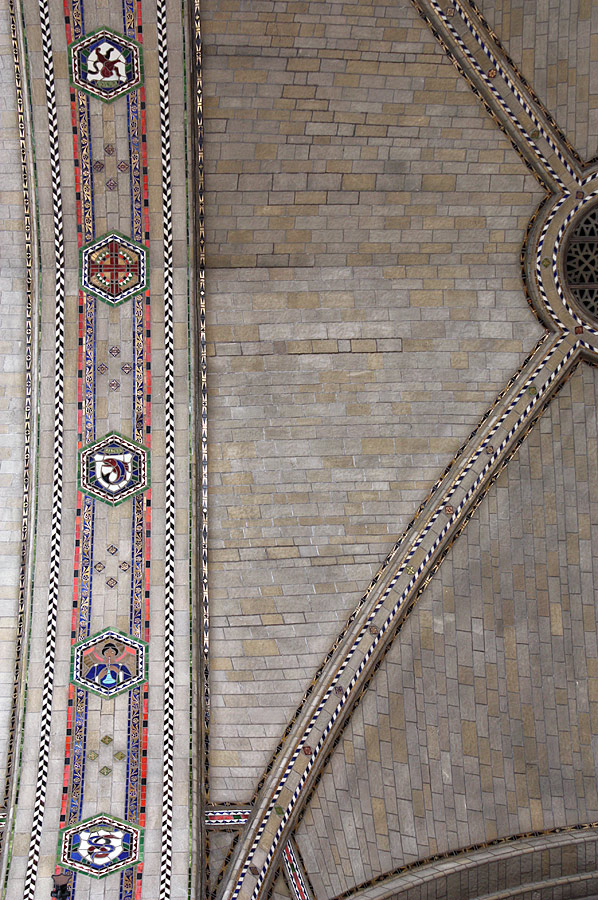
Rib of vault with black and white chevron border, Rockefeller Memorial Chapel
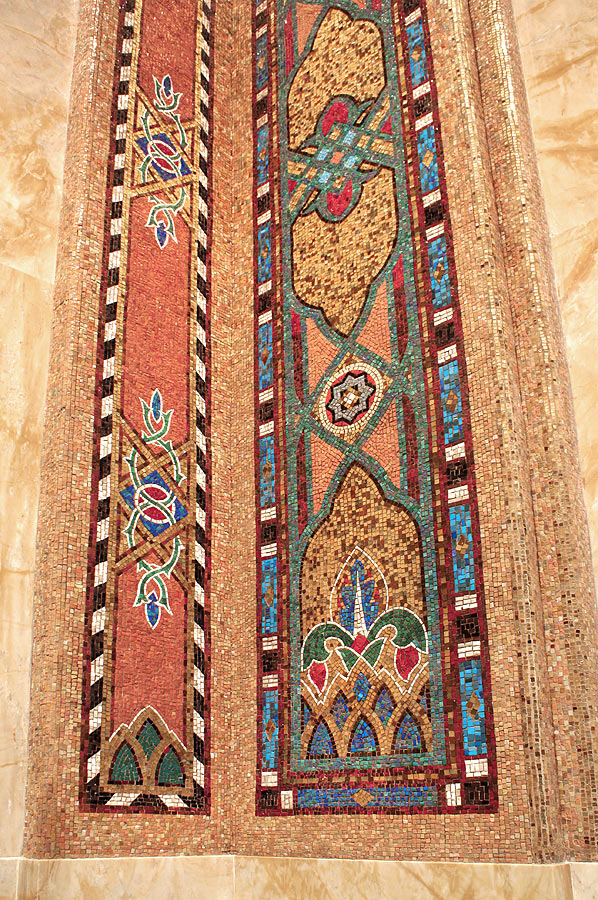
Eastern wall with black and white chevron border, Temple Emanu-El
As then President of the University Edgar J. Goodspeed wrote in his guide to Rockefeller Memorial Chapel:
What would ordinarily be the main transverse ribs of the vaulting are developed into great arches six feet wide and so richly ornamented as to constitute great bands of color. The arches spring from the stone piers at a height of fifty-two feet from the floor. The diagonal and lateral ribs are also emphasized with color, and the effect is to fill the great room with an atmosphere of cheer and even of joy.3
Edgar J. Goodspeed, The University of Chicago Chapel, A Guide (Chicago: The University of Chicago Press, 1928): 38.
For a full discussion, see Catherine Coleman Brawer, Walls Speak: The Narrative Art of Hildreth Meière (St. Bonaventure, New York: St. Bonaventure University, 2009): 40-45.
Goodspeed, p. 38.
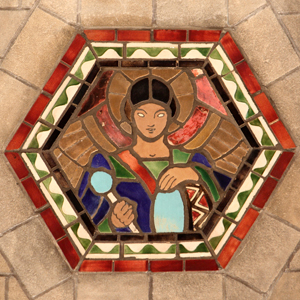
Rockefeller Memorial Chapel
5850 South Woodlawn Avenue
Chicago, IL 60637